DHEA, is relevant for bodybuilders for at least two reasons. One is that many supplements touted for their “testosterone-boosting” ability have DHEA as the active primary ingredient, although it is often listed by another name. Another is that DHEA is the only pro-hormone on the market.
While pro-hormone supplements were a previously lucrative commodity, they were banned by federal law in 2005. There’s a current legislative attempt to have DHEA removed from over-the-counter sales as well. The proposed ban is based on reports in medical journals that DHEA is an anabolic steroid and therefore is subject to the same restrictions as other anabolic steroid and pro-hormone drugs. One of the co-sponsors of the bill is Republican presidential candidate Senator John McCain of Arizona.
The labeling of DHEA as an anabolic steroid implies that it’s capable of increasing testosterone in the human body. In fact, DHEA is an adrenal steroid that can be a precursor, or starting substance, of various other steroids, such as testosterone and estrogen. Its actual effects in the body, however, aren’t that straightforward. DHEA can take a number of pathways through the body.
Enzyme activity can convert DHEA to androstenedione. “Andro” may ring a bell, as it was the second pro-hormone, after DHEA, to be commercially marketed. It gained notoriety when baseball slugger Mark McGwire admitted to using it.
Andro can also convert into other steroids. In women it usually converts to testosterone. In men it mainly converts to estrogen or to a metabolite of the testosterone by-product dihydrotestosterone, though some does also convert into testosterone.
The question is whether DHEA itself can reliably boost testosterone levels in men. Several studies have examined the metabolic pathway it takes. Early studies suggested that it predominantly converts to estrogen in men. More recent studies, however, indicate that a certain amount of it converts to testosterone, particularly in men who have lower testosterone or DHEA. A study reported in the March 2004 issue of the journal Fertility and Sterility traced the pathway of oral doses of DHEA in 14 men, age range 18 to 42. The men were randomly assigned to three dosage groups:
1) 50 milligrams of DHEA
2) 200 milligrams of DHEA
3) Placebo
The study lasted six months, and during that time none of the men showed any significant side effects, such as gynecomastia, a.k.a. “man boobs,” changes in testicular size or enlarged prostate. DHEA also had no effect on any of the men’s testosterone measures, regardless of the dose. More problematic, however, was the rise of ADG in those who took DHEA. ADG is a metabolite of the testosterone by-product dihydrotestosterone, a.k.a. DHT, that stays in the blood longer than DHT does. DHT is linked to such maladies as male-pattern baldness, acne and prostate enlargement.
Since none of the subjects experienced those effects even after six months, the side effects attendant to DHEA remain an open question. On the other hand, the rise in ADG could be a problem for long-term use by men over 40, since DHT and ADG are also linked to prostate enlargement and possibly cancer if estrogen levels are also higher than normal, which is common in older men with high bodyfat levels.
Because some conversion to andro and possibly testosterone does occur, could DHEA prove a useful aid for building muscle? That issue was examined in a study published nine years ago.1 Ten young men, average age 23, took 50 milligrams a day of DHEA. The men’s serum andro levels rose by 150 percent within an hour of taking DHEA, but that didn’t affect either testosterone or estrogen. Another 19 men, the same age, trained with weights for eight weeks, with half the men getting a daily dose of 150 milligrams of DHEA and the other half a placebo. The serum andro levels increased in the DHEA group at weeks two and five, but no other hormones rose. Both groups made similar gains in strength and lean mass, thus pointing to no beneficial effect from DHEA intake.
Does that mean that we can rule out DHEA as a useful muscle-building aid? That’s unclear, especially for older people. In a study published two years ago that involved older men and women, DHEA supplementation was found to increase the effects of a weight-training program in building muscle mass after 16 weeks of training.2
A more recent study involved women over age 64 who took 50 milligrams of DHEA a day and engaged in both weight-training and aerobic-exercise programs. Another group of women did the same exercise but took a placebo. After 12 weeks the women in the DHEA group had increased hormone measures, including DHEA-S, the circulating form of DHEA in the blood (up by 650 percent); total testosterone (100 percent); estradiol or estrogen (165 percent); estrone, a weaker estrogen (85 percent); and IGF-1 (30 percent).
While the exercise program led to beneficial changes in body composition, insulin sensitivity and blood lipids, the addition of DHEA provided no additional benefits to what was gained from the exercise program alone.
This study confirmed a previous widely reported study done by researchers from the Mayo Clinic and published in the October 19, 2006, issue of the New England Journal of Medicine. That study featured 87 men and 57 women over age 60 who took 75 milligrams a day of DHEA (men) or 50 milligrams a day (women) for two years. DHEA was found to have no effect on muscle strength, peak endurance, muscle mass or fat mass. Further confusing the issue was still another study that found that older people who took DHEA experienced a significant loss of abdominal fat along with an increase in insulin sensitivity.3 In that study the older female subjects all showed elevations of testosterone after oral intake of DHEA; both women and men showed elevated estrogen after using it.
Past studies show that giving rats huge doses of DHEA led to a significant loss of bodyfat, but rats do not produce significant levels of DHEA, which made the study’s relevance for humans questionable. Indeed, follow-up human studies found no fat-loss benefits with DHEA use, even with massive doses. Other reports showed that DHEA appears to blunt the effects of cortisol, which tends to rise in aging bodies, and improve insulin sensitivity, as insulin and cortisol have an inverse relationship in the body. DHEA may also blunt inflammation, an underlying cause of most degenerative diseases, including cardiovascular disease and cancer.
So it appears that DHEA may offer considerable health benefits to those over 40. It does, for instance, help maintain levels of IGF-1, the active component of growth hormone. IGF-1 helps maintain muscle function and connective tissue as people age. The effects of DHEA on building muscle are still nebulous at best, however. It should never be used by those under age 40, since DHEA measures are sufficient in most people until that age. People over 40 who are considering taking DHEA should have a blood test for DHEA-S and take the supplement only if they have a below-normal level. Since DHEA always converts to testosterone in women, women who want a bit more bang from their training buck may consider taking a small dose—25 to 50 milligrams—daily or every other day. Be aware, however, that women who take DHEA supplements also have a high incidence of adult acne. That isn’t surprising when you consider that DHEA is a primary culprit in teenage acne. A study published last year found that merely taking oral doses of free fatty acids leads to a rise in various hormones, including DHEA, in women.
Those who want to reap most of the immune-enhancing and other health benefits associated with DHEA should consider a special form called 7-keto DHEA, which is sold as a dietary supplement. It doesn’t convert into either testosterone or estrogen, but it does offer some weight-loss effects not offered by DHEA itself. The 7-keto form brings on a thermogenic effect in the liver that leads to greater fat oxidation. The major drawback to 7-keto is that it’s far more expensive than plain DHEA supplements.
I’ve taken DHEA supplements in the past and still take it on occasion. I did feel better when using DHEA, although I didn’t notice any particular benefits in my regular training program. The same holds true for the 7-keto form. I’d probably now stick with the 7-keto form for long-term use because of the finding that DHEA may promote the DHT metabolite. I’d rather not add male-pattern baldness or prostate problems to the other stresses of life.
So if information on DHEA supplementation is sketchy, what’s the answer? After all, according to statistics, two men out of 10 aged 60 or over have a testosterone deficiency. Even that stat may be low because it represents total testosterone, which includes both the free, or active, form of the hormone as well as the form bound to plasma proteins. Ninety-eight percent of circulating testosterone in the blood is bound to those proteins, but only 2 percent, the free form, can interact with cellular androgen receptors. So judging the level of testosterone only by measuring the total test level is both deceptive and inaccurate. Only the free level truly reflects the state of testosterone in a man.
Based on that, I believe that many men are walking around with lower-than-optimal active-test levels, especially since most doctors don’t routinely measure free testosterone. At least three recent studies that I know of show that having low testosterone significantly increases mortality in men, mainly as a result of heart failure. Among the effects of having low testosterone are these:
• Decreased energy
• Reduced muscle mass and strength
• Decreased brain function and possible risk of degenerative brain disease, such as Alzheimer’s.
• Low libido, possibly impotence, as test is required for nitric oxide release
• Depression
• Increased bodyfat, especially visceral, or deep-lying, abdominal fat, which is considered the most dangerous form from a health standpoint.
Physicians are hesitant to prescribe test to men because of fears of activating prostate cancer—an unfounded and inaccurate assumption, all based on one case study published in 1942! A recent study published in the Journal of the National Cancer Institute analyzed 18 worldwide studies related to prostate cancer and hormones. The study included 3,886 men with prostate cancer and 6,438 men who were cancer-free. It found no relationship between blood testosterone and estrogen and the onset of prostate cancer. Men who have prostate cancer should not take testosterone, although that, too, isn’t a certainty anymore. Consider that men with the lowest test levels show the most aggressive forms of prostate cancer, and one form of non-androgen-dependent prostate cancer actually recedes when treated with testosterone.
Actor Sylvester Stallone, who attributed his ability to portray action hero Rambo again at age 61 to his use of GH and test, believes that test is so effective that it will be offered over the counter within 10 years. I wouldn’t go that far, but other drugs currently in development called SARMs, or selective androgen receptor modulators, offer the benefits of test with little or no side effects. Perhaps when those drugs are available, doctors will have a more enlightened attitude. Men who are deficient in test who get on some form of test therapy will likely experience a far greater quality of life—and perhaps even live longer.
In the meantime, here are a few questions that men can ask themselves to judge whether they’re low in testosterone:
1) Are your erections weaker (and I don’t mean buildings)?
2) Do you have a decreased sex drive?
3) Do you feel fatigued and lack energy most of the time?
4) Do you fall asleep after dinner?
5) Has there been a recent deterioration in your work performance?
6) Have you noticed a decreased enjoyment of life?
7) Are you experiencing a decrease in strength, muscle size and endurance?
8) Is your ability to play sports lessened?
9) Are you sad and grumpy?
10) Have you lost weight?
11) Do you find yourself sexually attracted to Hillary Clinton (just joking)?
The test is positive for low testosterone if you answered yes to questions one or two or to any three other questions. The test was developed by a group of endocrinologists, several of whom express sexual interest in Hillary Clinton. At least they didn’t mention John McCain.
References
1 Brown, G.A., et al. (1999). Effect of oral DHEA on serum testosterone and adaptations to resistance training in young men. J Appl Physiol. 87:2274-2283.
2 Villareal, D.T., et al. (2006). DHEA enhances effects of weight-training on muscle mass and strength in elderly women and men.Am J Physiol Endocrinol Metab. 291:E1003-E1008.
3 Villareal, D.T., et al. (2004). Effect of DHEA on abdominal fat and insulin action in elderly women and men: A randomized, controlled study. JAMA. 292:2243-2248. IM













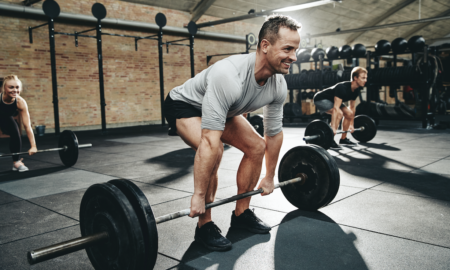


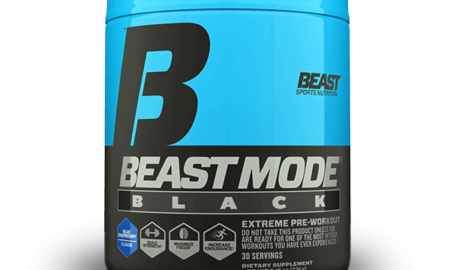
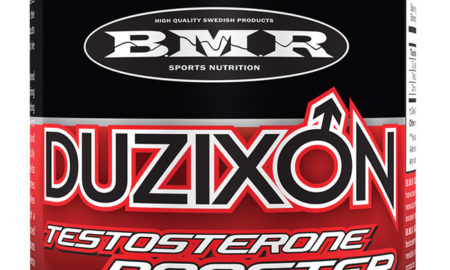
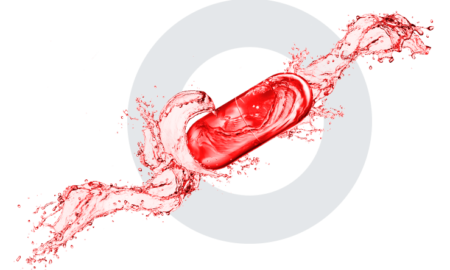
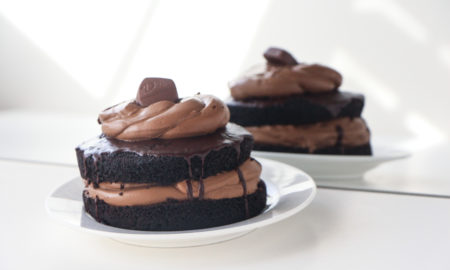
You must be logged in to post a comment Login